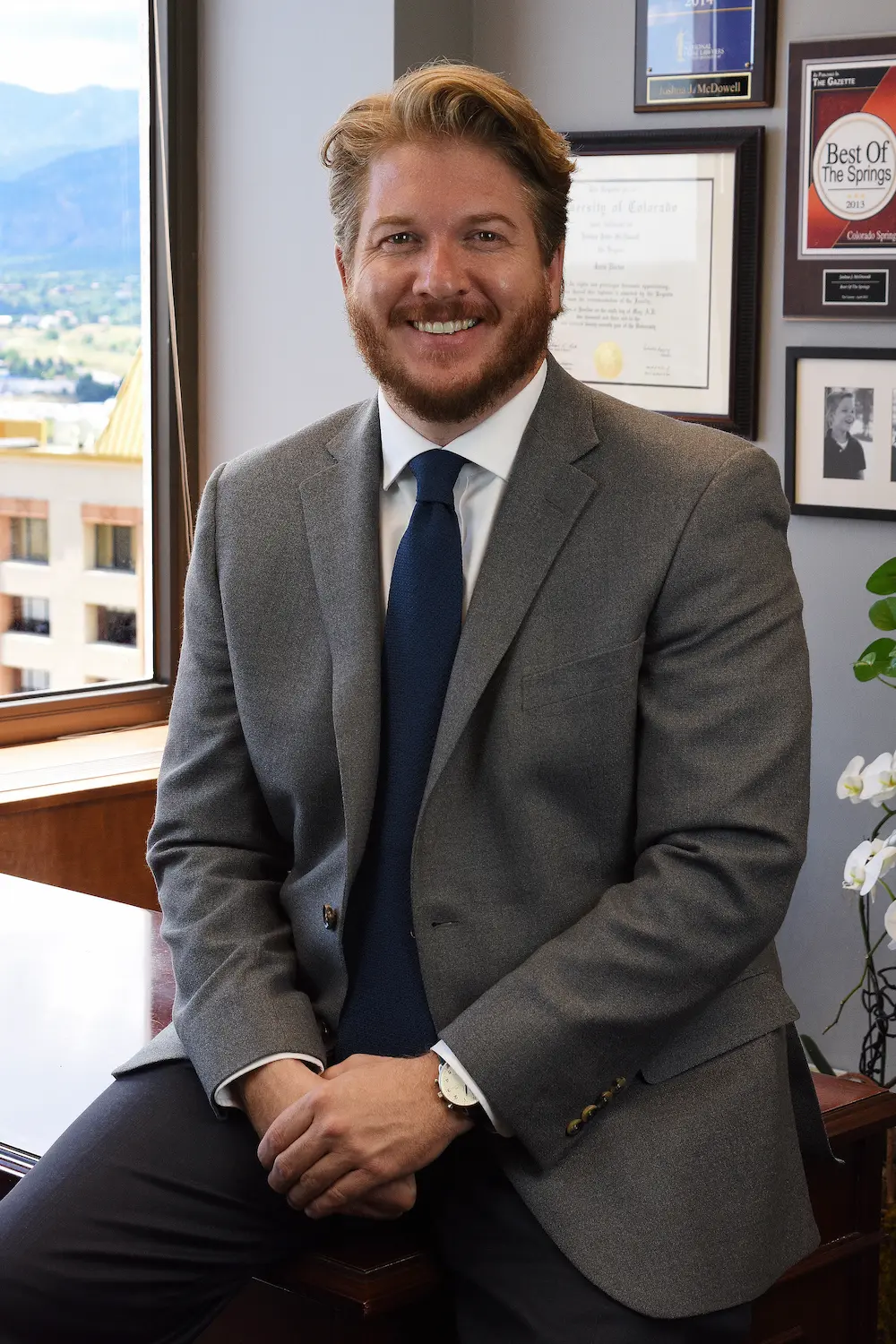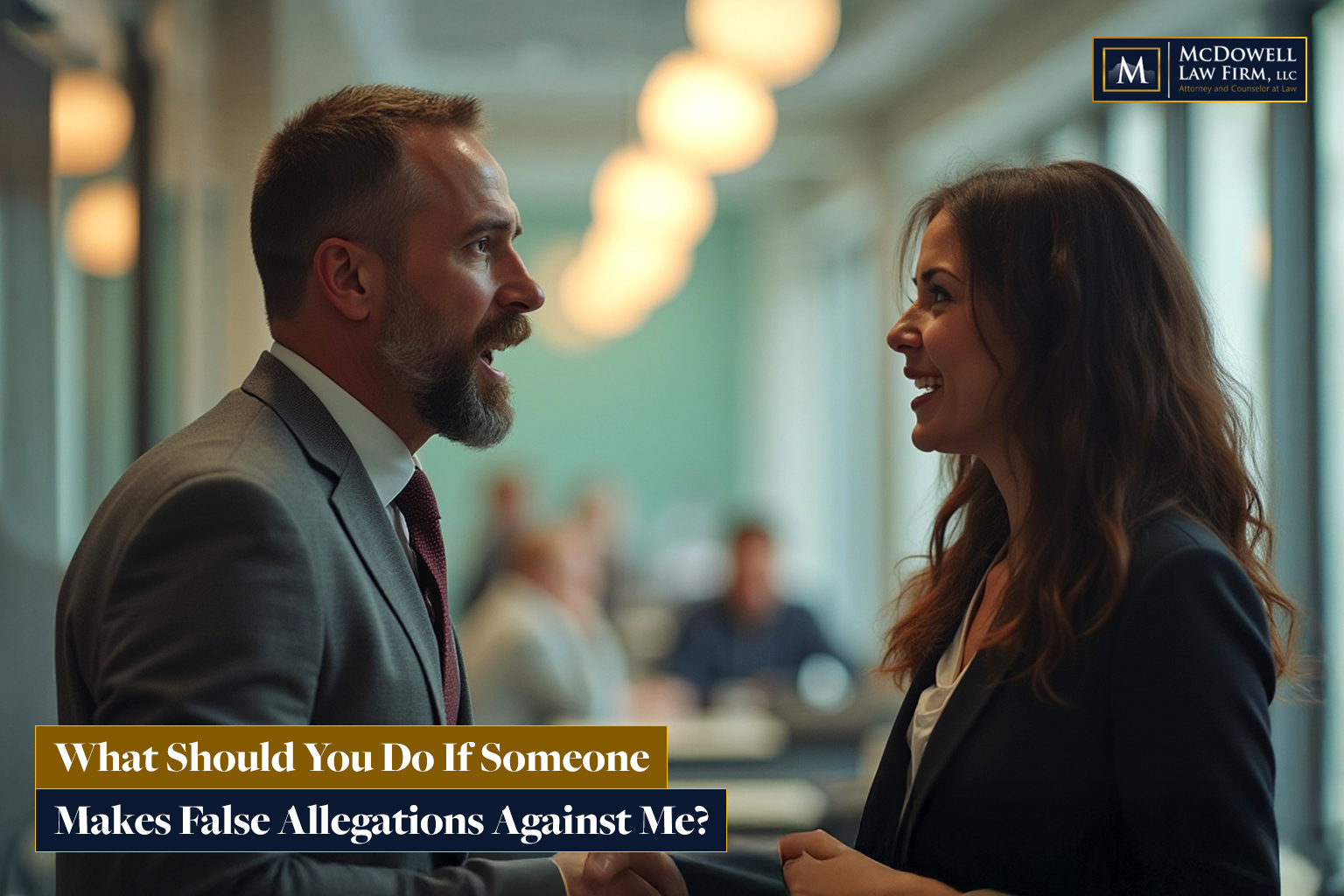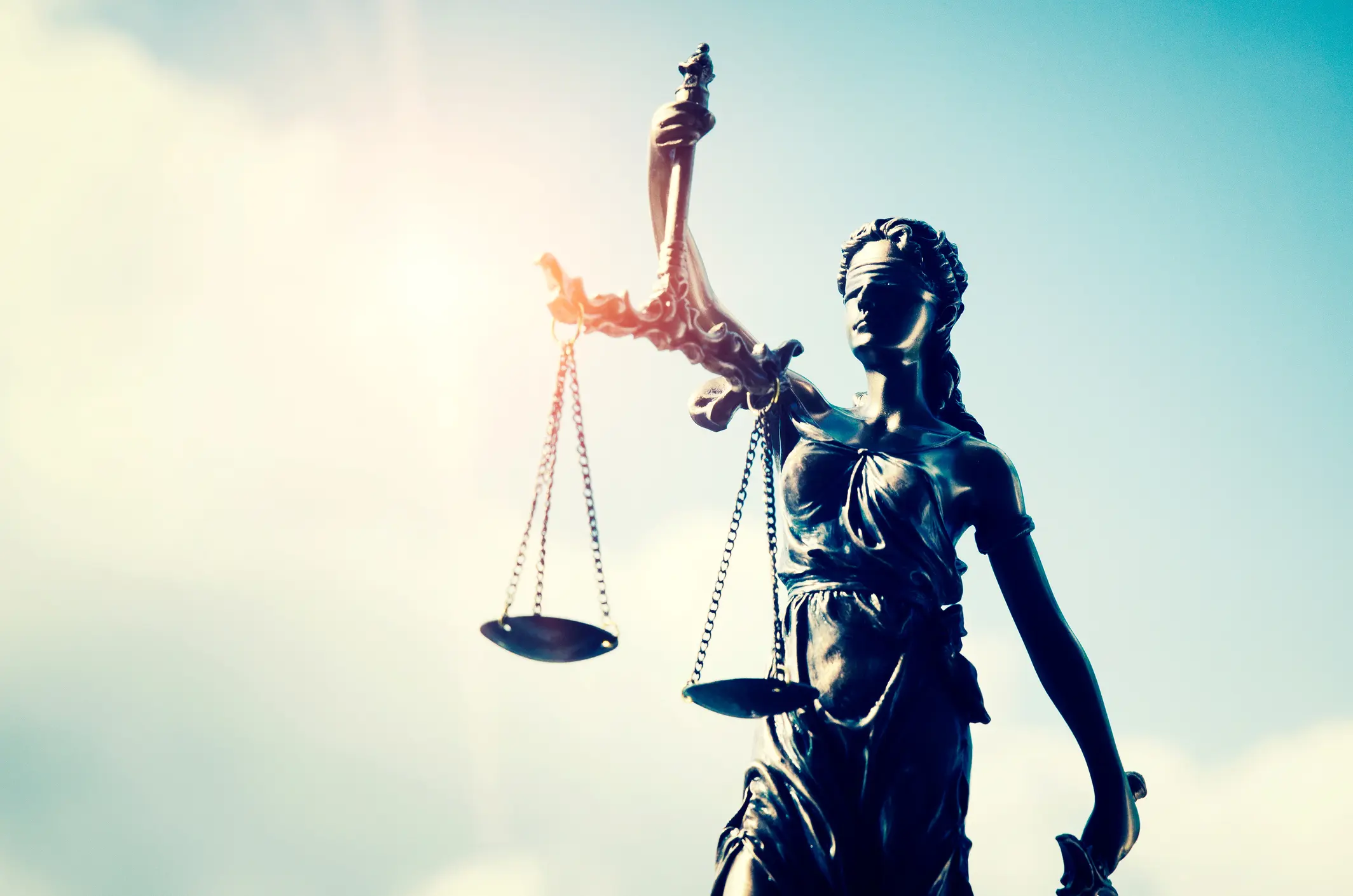False accusations can quickly turn your life upside down. Whether you’re facing baseless claims in the workplace or someone has made a false criminal report to law enforcement, the consequences can be devastating.
At the McDowell Law Firm in Colorado Springs, we’ve represented many individuals who were wrongly accused—and we know how important it is to respond swiftly, strategically, and with experienced legal guidance.
You never know when someone will accuse you, but you can take action when it happens. If you’ve been falsely accused, here’s an outline of some important steps you should take when facing accusations:
When Someone Makes False Accusations Against You: Quick Summary
- Don’t React out of Fear/Anger
- Preserve All Relevant Evidence
- Call a Criminal Defense Attorney Immediately
- Don’t Talk to Police or Investigators Alone
- Follow All Legal and Administrative Processes
False Accusation: What Should You Do?
Step 1: Don’t React out of Fear/Anger
Your initial reaction may be to defend yourself immediately, especially if the accusation is completely false. But emotional responses, particularly in writing or online, can be misinterpreted or used against you later.
Many people lash out in fear or anger when falsely accused. It’s quite common, but that doesn’t mean it’s a good idea. You can potentially create new evidence that could be used against you later.
Avoid confronting the accuser or trying to explain yourself to others without legal counsel. Instead, stay quiet, stay focused, and start thinking strategically.
Example – Workplace:
A co-worker accuses you of making inappropriate comments. You’re tempted to send texts defending yourself or confronting them.
Remember, anything you say may be forwarded to HR or legal counsel. Speak to your legal counsel about the best steps to protect yourself
Example – Criminal:
A neighbor falsely accuses you of assault. Do not talk to them or try to clear the air. This can be seen as witness tampering.
Remember:
in a criminal case, you don’t need to disprove that something did or didn’t happen. The burden lies with the State. You are innocent until proven guilty. However, you should be proactive. Let’s keep going through the steps below.
Step 2: Preserve All Relevant Evidence
Start gathering everything that could help prove your innocence:
- Texts, emails, or social media messages
- Work schedules, GPS records, or security footage
- Eyewitness contact information
- Copies of workplace policies or complaint procedures (if applicable)
Organize these records and keep them in a secure location. Do not delete anything, even if you think it could be misunderstood. It’s good to preserve evidence, as you never know what will work in your favor.
Real-life example: Do you remember the Duke Lacrosse case? Duke University lacrosse players were falsely accused of sexual assault by an adult entertainer.
ATM and fast-food receipts became very important in establishing an alibi for one of the young men. As more evidence was uncovered, photographs and eyewitness testimony showed that the alleged victim’s account was not truthful.
A lying “victim” and an overzealous DA’s office created a perfect storm that changed many people’s lives. In that case, receipts became an important piece of evidence in unraveling the false allegations.
Step 3: Call a Criminal Defense Attorney Immediately
If you’re in Colorado Springs and have been falsely accused, reach out to an experienced criminal defense attorney right away. Even if you haven’t been charged, early legal representation can make a major difference. A defense lawyer will guide clients through these difficult moments and help prevent innocent people from being wrongfully charged or punished.
An attorney can:
- Communicate with HR or law enforcement on your behalf
- Advise you on what to say—and what not to say
- Begin gathering evidence and preparing your defense early
We have handled many cases where the evidence shows a victim’s story cannot be true. We can use investigators to interview witnesses and track down evidence that supports the truth. I can think of many cases where something simple became very important later.
My first order of business is always the same: I’m going to tell you not to talk to anyone about the allegations without the advice and presence of your attorney.
And 9 times out of 10, I’m still going to tell you it’s probably in your best interest not to make any statements at all. Why? Keep reading.
Step 4: Don’t Talk to Police or Investigators Alone
If law enforcement reaches out to you, do not speak to them without your lawyer present. It’s common to think that explaining your side will clear things up—but investigators are trained to ask questions in ways that can trap you.
Even saying, “I didn’t do anything wrong,” can be twisted later. Any statement can and will, be used against you. Answering any question about: who, where, why, what, how…is all part of the police’s investigation
Instead, politely say:
“Before we go any further, I need to speak with my attorney first.”
Then call your lawyer. And stop talking.
Some of the most damaging false accusations are of a sexual nature. Whether it be inappropriate workplace behavior or a sexual assault, false allegations of this nature can get you fired or sent to prison.
There are typically only two people who know the truth in these situations. Beyond the “he said, she said” police are looking for physical evidence, or other proof that an assault occurred. What do police often ask in sexual assault cases? Whether there was consensual sexual contact.
They want to know if the parties engaged in any behavior that could leave DNA evidence or signs of other physical trauma. They also want to lock in the parties to their stories early in the case.
These early steps in an investigation play a large part in how the case proceeds. When I hear people say,” I didn’t do anything wrong, why would I need an attorney?” Innocent people need guidance as well.
They also need to defend themselves against the State when they are facing criminal charges. When in doubt, shut your mouth. Less is more in cases where you are being investigated for wrongdoing.
Step 5: Follow All Legal and Administrative Processes
If you’ve been accused of misconduct at work, follow your employer’s procedures—with your attorney’s help. If you’ve been falsely accused of a crime, attend all court dates and comply with any legal requirements.
Avoid discussing your case publicly. That includes social media, where even vague posts can be taken out of context. Your attorney can provide guidance and advice on your next best steps. Every case is unique, and hopefully, you haven’t been through this before.
The best criminal defense attorneys have handled dozens, if not hundreds, of cases very similar to what you’re going through. They know how to “stop the bleeding” and to start making decisions to protect your interests. I handle cases every day where my clients disagree with what is written in police reports and witness statements.
And every case needs a nuanced and individual approach to confront the allegations. In many cases, a person’s reputation and freedom are on the line.
Real-World Examples from Colorado
At the McDowell Law Firm, we’ve successfully defended clients facing false allegations like:
- Domestic Violence: A man was falsely accused by a former partner of abuse, including strangulation with serious bodily injury. He was charged with 2 counts of first-degree assault. At trial, the alleged victim’s testimony was contradictory to her first version of events. On cross-examination, her doctor admitted that her wounds could have been pre-existing. Not guilty on all counts.
- Assault: A client was accused of physical violence after a dispute at a bar. Security footage and eyewitness testimony showed that the alleged victim was clearly the aggressor and our client acted in self-defense. All charges were dismissed.
- Drunk Driving: A client was stopped for weaving and refused chemical testing. She testified she was at a Halloween party and only had one drink, but did poorly on roadside tests (field sobriety) based on her costume and shoes. At trial, a jury found her not guilty of all counts.
Final Thoughts: When Someone Accuses You of Something You Did not Do
False accusations are serious—but you are not powerless. With the right legal strategy, you can protect your reputation, career, and freedom. The most important thing you can do is act quickly and contact a lawyer before things escalate.
At the McDowell Law Firm, we’re here to help. If you’re facing a false accusation in Colorado, schedule a confidential consultation with our experienced defense team today.
Frequently Asked Questions (FAQ)
Q: Can I be arrested based on a false accusation?
A: Yes. In Colorado, if someone files a police report, law enforcement may arrest you even before the facts are fully investigated if the officers believe they have probable cause for the arrest/charges. Probable cause is a very low standard. That’s why hiring a defense attorney immediately is so important.
Q: Should I confront the person making the false allegation?
A: No. Confronting your accuser—especially in person or via text—can escalate the situation and even lead to harassment or intimidation charges. Let your lawyer handle all communication.
Q: What should I do if HR asks me for a statement about a workplace complaint?
A: Politely request time to consult with legal counsel before submitting anything. An attorney can help you write a response that protects your rights and prevents misinterpretation.
Q: Can false allegations affect my job or professional license?
A: Absolutely. Even unproven claims can lead to suspension, termination, or disciplinary action from licensing boards. That’s why early legal guidance is crucial for professionals in healthcare, education, law enforcement, and more.
Q: I wasn’t charged yet—should I still hire a lawyer?
A: The sooner you get legal advice, the better your chances of avoiding charges altogether. We often help clients shut down investigations before they lead to formal charges.





